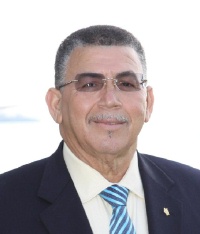Bush returns to power: In Cayman Islands
By: Bevan Springer
CAYMAN ISLANDS – Seasoned policy maker McKeeva Bush has been returned to power to lead the Cayman Islands after spending the last four years in the proverbial political wilderness. And he is wasting no time repositioning the Cayman Islands as a premier tourism hot spot in a difficult economic environment that has resulted in double digit declines in arrivals during the first quarter.
Following general elections last month, Bush, who had previously served as the British dependency’s leader from 2001 to 2005, has been sworn in as Leader of Government Business (Premier Designate) as well as Minister of Financial Services, Tourism and Development for the Cayman Islands.
McKeeva Bush: Back in charge in Cayman.
“We face an economic crisis that is shaking global travel and tourism to the core. Our small nation, a trio of islands, is certainly not exempt. The Cayman Islands’ tourism industry is one of the smartest, most resilient and hardworking in the Caribbean and I am confident that working hand in hand, sticking together despite our differences and special interests, we can weather the storm and come out stronger on the other side,” said Bush who recently travelled to Washington DC with his team to hold bilateral talks and participate in the Annual Caribbean Tourism Summit, an event organized by the Caribbean Tourism Development Company.
Minister of Tourism of neighboring Jamaica, Edmund Bartlett reports that talks between regional tourism ministers and the US State Department focused on securing pre-clearance facilities in the region, which will allow for quicker and easier immigration clearance for American visitors returning from the Caribbean.
A benefit currently enjoyed by a handful of Caribbean countries, including Aruba, Bahamas and Bermuda, pre-clearance helps carriers increase utilization of their aircraft with quick turnaround times as well as opens up business opportunities for secondary US airports which currently do not have immigration clearance facilities.
Bartlett said discussions with the State Department also focused on amendments to existing duty-free policies, which placed most Caribbean destinations at a competitive disadvantage. He said that visitors to Puerto Rico and the United States Virgin Islands enjoy a duty-free allowance of US $1,000, while visitors to other Caribbean nations are allowed only US$500. It is believed US Congresswoman Dr. Donna Christensen, a medical doctor, will be called upon to help broker the deadlock on this issue.
It is understood that another goal for the Caribbean is the possible reduction or elimination of certain US air ticket taxes to help reduce the cost of travel and increase demand for the region. The argument being advanced takes into account the impact of the Western Hemisphere Travel Initiative or the new US passport requirement which has shrunk the pool of Americans who can travel to the region via air, and forced the Caribbean to now compete with the rest of the world for their share of US travelers. Caribbean officials are also calling for greater attention to Caribbean development issues under the Third Border Initiative, arguing that without economic viability within the region security concerns to the United States may be affected.
Bartlett said that the Caribbean as a tourist destination needs to take a serious look at re-defining itself to meet the emerging global economic challenges. “We need to start examining our own business model as we seek to create greater efficiency and improve the quality of service that we provide to our visitors. It is the enhanced visitor experience that is going to keep the Caribbean competitive,” he stated, stressing the need for destinations to modernize. “This is vital as the industry will be looking for value, which is going to be the key word as prices become more competitive.”


